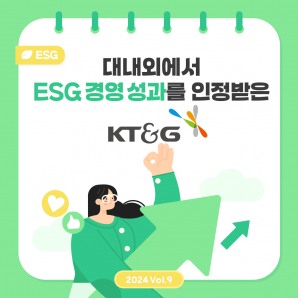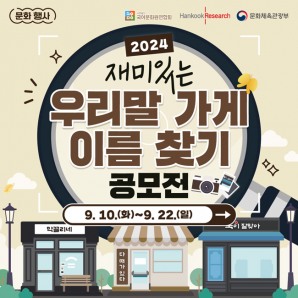
LG Household & Health Care's 'The Whoo'. / Photo = LG H&H
According to LG H&H on the 31st, the company posted consolidated sales of KRW1.7136 trillion in the third quarter of this year, down 1.9% from the previous year (KRW1.7462 trillion). During the period, cosmetics sales fell 2.9% year-on-year to KRW 650.6 billion, household goods fell 1.3% to KRW 562.6 billion, and beverages fell 1.1% to KRW 500.4 billion. As a result, LG H&H's cumulative sales for the third quarter were KRW 5.202 trillion, down 0.7% from the previous year (KRW 5.2376 trillion). The company had posted a 2.7% growth rate in the first quarter, but it took a step backwards as domestic sales fell for the second consecutive quarter. The company's flagship business faltered, resulting in an overall decline.
Profitability also showed red flags. Operating profit in the third quarter was KRW 106.1 billion, down 17.4% from the previous year (KRW 128.5 billion). During the same period, LG H&H's SG&A expenses were KRW 771 billion, down 2.8% from the previous year. Despite reducing SG&A expenses, profitability deteriorated due to slower overall growth. Net profit was KRW 73.5 billion, down 19.4% from the previous year (KRW 91.3 billion).
This was due to the prolonged slump in domestic demand. The cost and fixed cost burden continued to increase, and channels such as supermarkets and department stores continued to close, leading to an overall decline in sales volume. In fact, the number of stores of the three major domestic supermarkets decreased from 158 in 2019 to 153 in 2024, Homeplus from 140 to 129, and Lotte Mart from 125 to 111 before the pandemic.
Overseas, the restructuring of its North American subsidiaries has also put the brakes on K-beauty growth. In the third quarter of this year, LG H&H's cumulative overseas sales reached KRW 1.4942 trillion, up just 1.3% from the previous year (KRW 1.4746 trillion). More than 80% of LG H&H's overseas sales come from beauty (cosmetics).
North America, the world's second-largest market, slipped due to corporate restructuring. In the third quarter of this year, LG H&H generated cumulative sales of 378.5 billion won in North America. That's down 14.6% from 443.3 billion won the previous year. The company attributed the decline to the reduction of sales offices to streamline its business in North America. Instead, LG H&H has placed its derma line 'CNP', 'PHYSIOGEL', and 'Dr.Groot' on Amazon, the largest shopping mall in the US. The company has also started selling its 'The Face Shop RICE WATER BRIGHT' cleansing products, which have sold 36 million units in Korea, in the US. 'Bilief' is also expanding its online and offline sales network in North America by introducing its flagship line ‘Bomb Cream’ to Sephora, a luxury beauty editorial shop in the US.
In the Chinese-speaking world, on the other hand, the luxury line ‘The Whoo’ was strong. It accounts for 50% of LG H&H's total beauty sales. This was due to the renewal of the brand's popular lines such as ‘Cheongidan’ and ‘Bichup Ultimate Recovery youth Serum’. The company invited Chinese influencers to Korea to showcase the production process of the brand, and marketed it locally through live broadcasts. According to Chinese research firm Qingan Information, The Whoo was ranked among the top five skincare products on TikTok alone during the '618 Chinese Shopping Day', with sales of more than 100 million yuan. LG H&H's sales in China also grew by 8.9% year-on-year (KRW 569.1 billion) to KRW 522.7 billion in the third quarter.
In Japan, colour tint lines ‘Glint’ and ‘Freshian’ showed growth as interest in K-beauty increased. LG H&H held a pop-up at the ‘Mega Cosmeland 2024’ event organised by Japanese shopping mall Quten, attracting about 20,000 people. The event was so popular that all 10,000 samples were sold out. LG H&H' cumulative sales in Japan in the third quarter of this year reached KRW 283.3 billion, up 2.7% from the previous year (KRW 276 billion).
As such, LG H&H has been actively marketing K-beauty by appointing actress Kim Ji-won as the global ambassador of its flagship line, The Whoo. The company's strategy is to make up for the sluggish domestic market with overseas sales.

LG Household & Health Care's 'Coca-Cola'. /Photo = LG H&H
The household goods and beverage businesses, which rely heavily on domestic demand, were not immune to the downturn. However, PHYSIOGEL and EUTHYMOL in household products and 'Coca-Cola Zero' in beverages were able to increase sales due to the zero trend. PHYSIOGEL was strong with the launch of DMT Regenerative Cream, which improved moisture and skin barrier function. EUTHYMOL increased sales by expanding its range of teeth whitening products. Coca-Cola prevented a decline in cumulative sales in the third quarter thanks to the popularity of its sugar-free Zero line.
LG H&H's household goods business posted cumulative sales of KRW 1.6374 trillion in the third quarter of this year, down 2.5% year-on-year. The beverage business, on the other hand, remained flat at KRW1.4134 trillion, up 0.5% year-on-year.
LG H & H stated, “This year, we are strengthening our digital marketing centered on online channels,” and “Last year, we opened direct malls for ‘SU:M37°,’ ‘OHUI,’ and ‘Glint,’ and this year, we opened a direct mall for ‘The Whoo.’”
The company then added, “We also operate ‘Million Beauty Mall,’ which sells premium daily necessities such as ‘EUTHYMOL,’ ‘VEILMENT,’ and ‘SILK THERAPY,’ and it grew 63% compared to last year,” and added, “We will provide customer value so that they can safely purchase trustworthy genuine products through our direct online mall.”
Son Wontae (tellme@fntimes.com)



























![톱25 증권사 여성이사 ‘미풍’…사외이사 10% 그쳐 [사외이사 줌人 (2)]](https://cfnimage.commutil.kr/phpwas/restmb_setimgmake.php?pp=006&w=69&h=45&m=5&simg=2025041222515809106dd55077bc25812315232.jpg&nmt=18)

![기관 '알테오젠'·외인 '에이비엘바이오'·개인 '삼천당제약' 1위 [주간 코스닥 순매수- 2025년 4월7일~4월11일]](https://cfnimage.commutil.kr/phpwas/restmb_setimgmake.php?pp=006&w=69&h=45&m=5&simg=2025041123072807854179ad4390721123588129.jpg&nmt=18)
![흥국생명·화재, 여성 ‘제로’…중소형 보험사 이사 다양성 미흡 [사외이사 줌人 (2)]](https://cfnimage.commutil.kr/phpwas/restmb_setimgmake.php?pp=006&w=69&h=45&m=5&simg=2025041307412406750dd55077bc25812315232.jpg&nmt=18)
![LB인베스트먼트, AI·딥테크 등 유망기업 1500억원 이상 투자 도모 [2025년 VC 전략지도]](https://cfnimage.commutil.kr/phpwas/restmb_setimgmake.php?pp=006&w=69&h=45&m=5&simg=2025041307542506596dd55077bc25812315232.jpg&nmt=18)

![인카금융서비스, 설계사 1만명 영입·매출액 1조2000억원 목표 [GA 2025년 주요 사업전략]](https://cfnimage.commutil.kr/phpwas/restmb_setimgmake.php?pp=006&w=69&h=45&m=5&simg=2025041307384807523dd55077bc25812315232.jpg&nmt=18)

![크래프톤, 대표는 ‘연봉킹’ vs 주주들은 ‘손해’ [정답은 TSR]](https://cfnimage.commutil.kr/phpwas/restmb_setimgmake.php?pp=006&w=69&h=45&m=5&simg=2025041309205204198dd55077bc25812315232.jpg&nmt=18)
![[기자수첩] 한화그룹,‘오해’라는 본 모습](https://cfnimage.commutil.kr/phpwas/restmb_setimgmake.php?pp=006&w=69&h=45&m=5&simg=2025041323360607438dd55077bc25812315232.jpg&nmt=18)












![[카드뉴스] 신생아 특례 대출 조건, 한도, 금리, 신청방법 등 총정리...연 1%대, 최대 5억](https://cfnimage.commutil.kr/phpwas/restmb_setimgmake.php?pp=006&w=298&h=298&m=1&simg=20240131105228940de68fcbb35175114235199_0.jpg&nmt=18)
![[카드뉴스] KT&G ‘Global Jr. Committee’, 조직문화 혁신 방안 제언](https://cfnimage.commutil.kr/phpwas/restmb_setimgmake.php?pp=006&w=298&h=298&m=1&simg=202503261121571288de68fcbb3512411124362_0.png&nmt=18)


![[카드뉴스] 국립생태원과 함께 환경보호 활동 강화하는 KT&G](https://cfnimage.commutil.kr/phpwas/restmb_setimgmake.php?pp=006&w=298&h=298&m=1&simg=202403221529138957c1c16452b0175114235199_0.png&nmt=18)
![[신간] 리빌딩 코리아 - 피크 코리아 극복을 위한 생산성 주도 성장 전략](https://cfnimage.commutil.kr/phpwas/restmb_setimgmake.php?pp=006&w=81&h=123&m=5&simg=2025032814555807705f8caa4a5ce12411124362.jpg&nmt=18)
![[신간] 지속 가능 경영, 보고와 검증](https://cfnimage.commutil.kr/phpwas/restmb_setimgmake.php?pp=006&w=81&h=123&m=5&simg=2025011710043006774f8caa4a5ce12411124362.jpg&nmt=18)
![[서평] 추세 매매의 대가들...추세추종 투자전략의 대가 14인 인터뷰](https://cfnimage.commutil.kr/phpwas/restmb_setimgmake.php?pp=006&w=81&h=123&m=5&simg=2023102410444004986c1c16452b0175114235199.jpg&nmt=18)

![[신간] 똑똑한 금융생활...건전한 투자와 건강한 재무설계 지침서](https://cfnimage.commutil.kr/phpwas/restmb_setimgmake.php?pp=006&w=81&h=123&m=5&simg=2025031015443705043c1c16452b012411124362.jpg&nmt=18)

![[카드뉴스] KT&G ‘Global Jr. Committee’, 조직문화 혁신 방안 제언](https://cfnimage.commutil.kr/phpwas/restmb_setimgmake.php?pp=006&w=89&h=45&m=1&simg=202503261121571288de68fcbb3512411124362_0.png&nmt=18)
![[AD] 기아, 혁신적 콤팩트 SUV ‘시로스’ 세계 최초 공개](https://cfnimage.commutil.kr/phpwas/restmb_setimgmake.php?pp=006&w=89&h=45&m=1&simg=2024123113461807771f9c516e42f12411124362.jpg&nmt=18)
![[AD] 아이오닉5 '최고 고도차 주행 전기차' 기네스북 올랐다...압도적 전기차 입증](https://cfnimage.commutil.kr/phpwas/restmb_setimgmake.php?pp=006&w=89&h=45&m=1&simg=2024123113204707739f9c516e42f12411124362.jpg&nmt=18)




